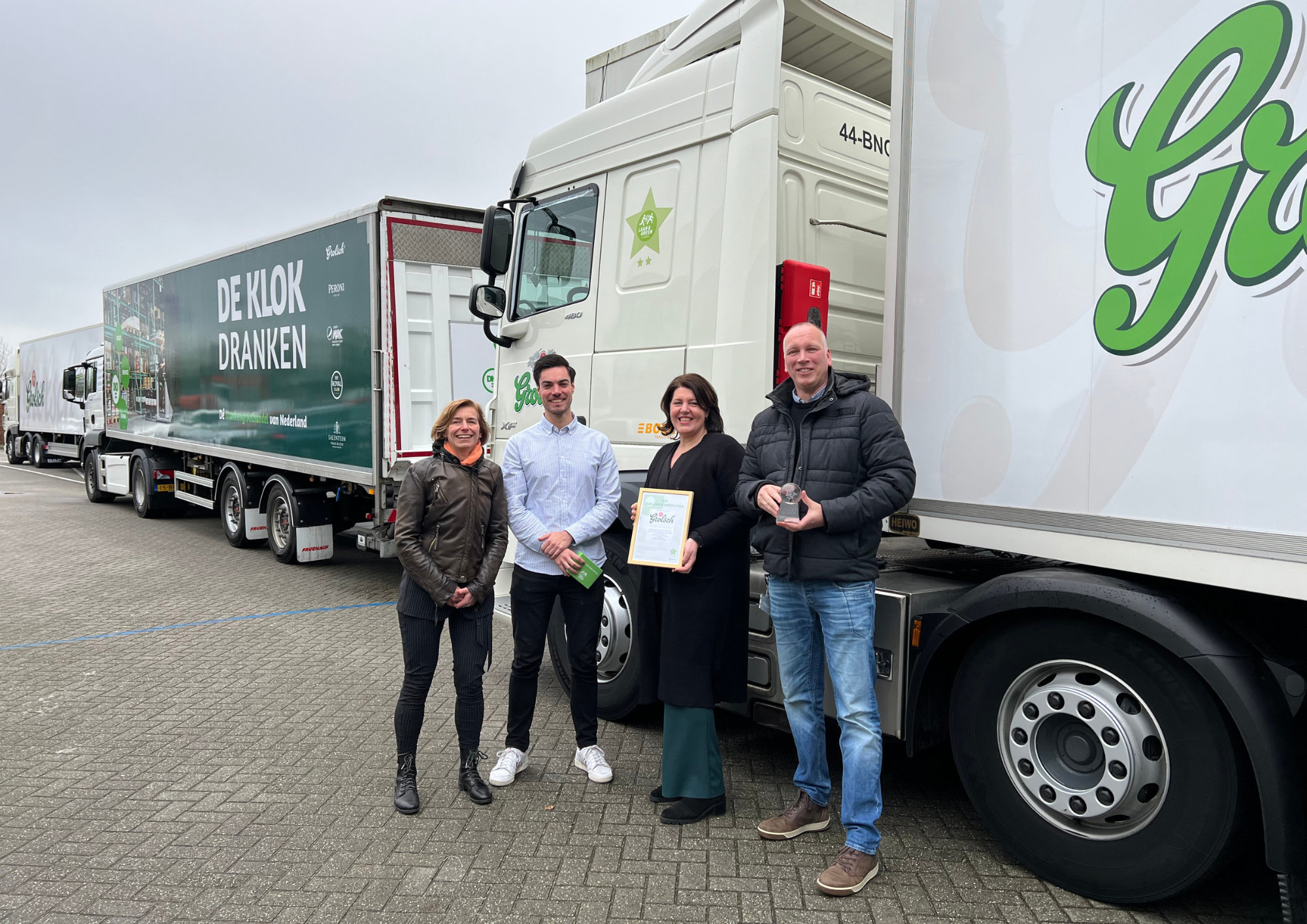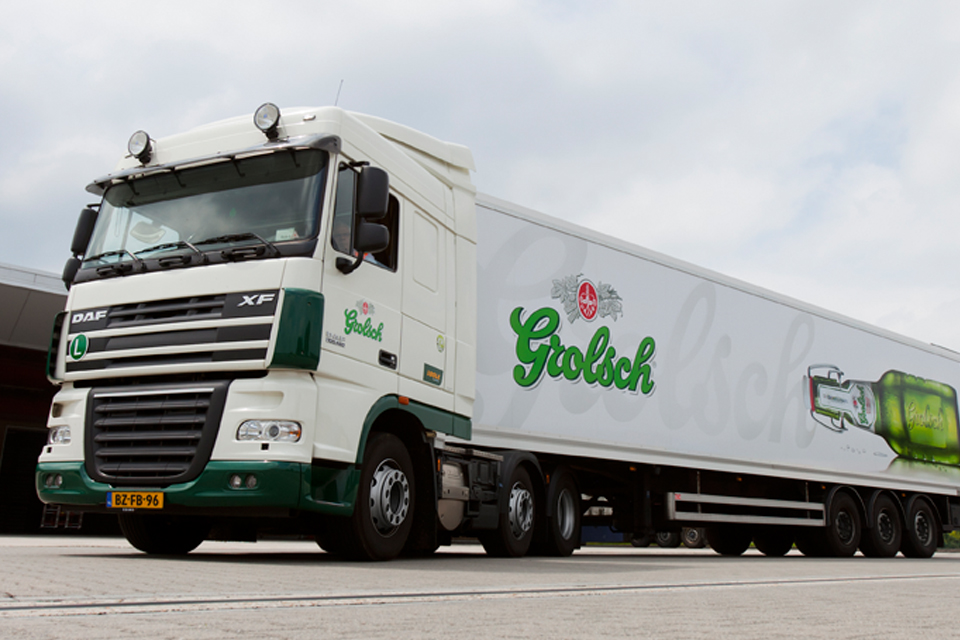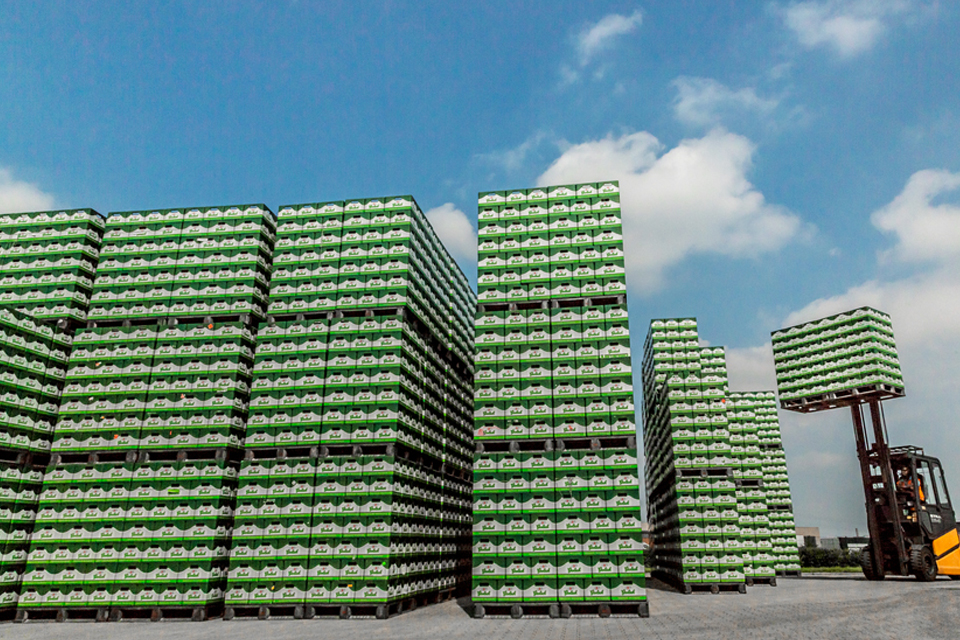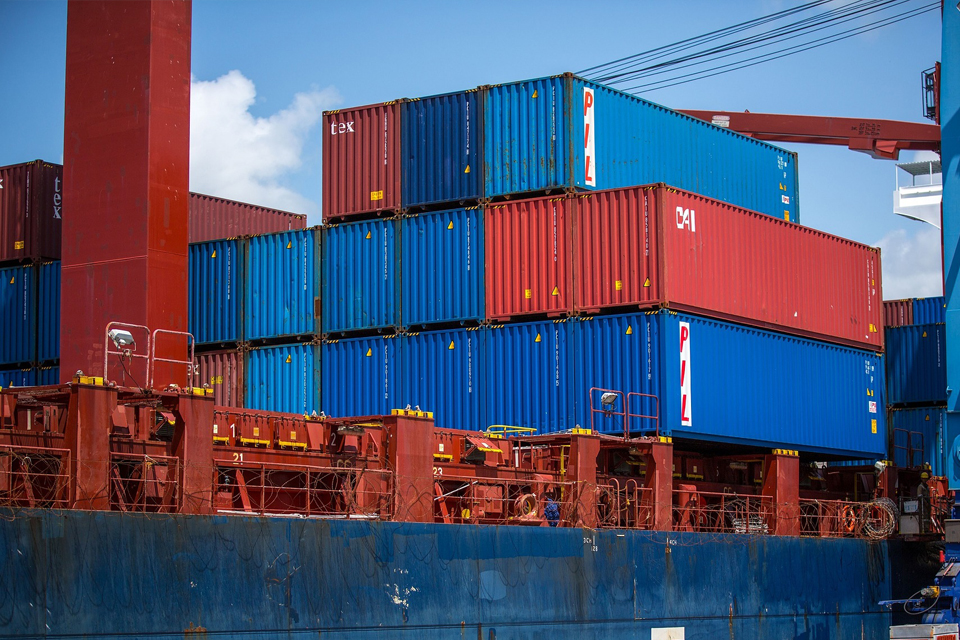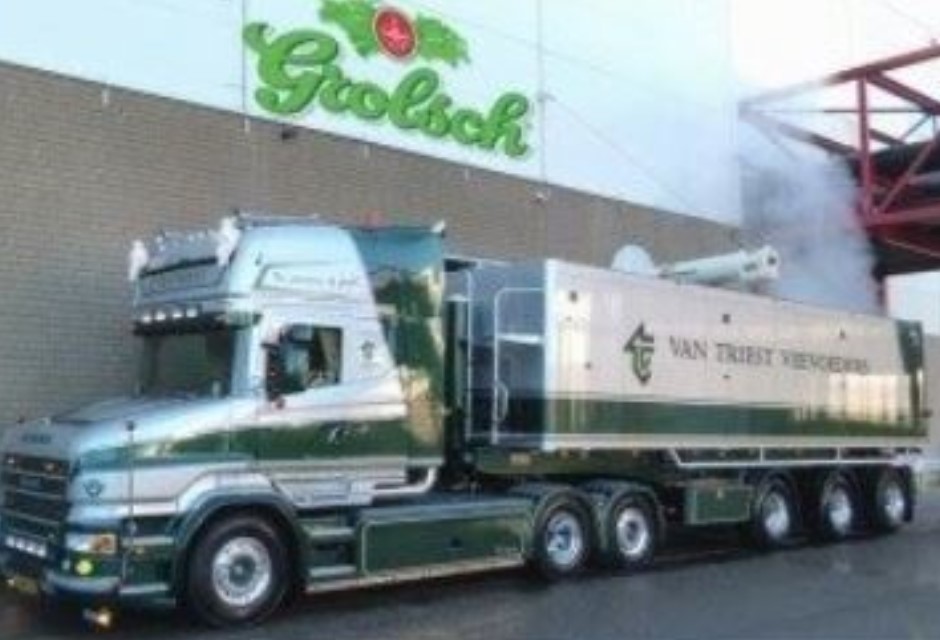Optimizing transport
An important aspect of sustainable business operations is transport. In order to become a fully climate-neutral company, we are therefore taking further steps to also make our transport and related processes fully sustainable (scope 3).
Objective
Preparation of 3rd Lean & Green star.
Result
In 2023, we achieved the 2nd L&G star for our results and measures in the field of pallet transport in the Netherlands / cellar beer distribution / intermodal transport (barge) / De Klok Dranken.
Objective
Put various measures in practice to reduce CO2 such as return planning for packaging / Horizon planning.
Result
These are measures that we will continue to build on. We have started with Horizon and will expand this in 2024. In addition, we are continuously working to sharpen efficiency in the planning to avoid ‘empty kilometres’.
Objective
Promote barge use in Asahi's organisation and also explore possibilities to make import flows more sustainable.
Result
In 2023, we largely handled the import and export flows of kegs to and from the UK via barge. In this way, we use container transport via inland waterways (intermodal) in the Netherlands. In addition, by directly unloading/loading, we ensure a ‘round trip’ (and avoid ‘empty kilometres’).
TMS possibilities to map CO2 consumption per shipment in a dashboard.
Result
Measures to achieve this are ongoing. We need to have the basics in order first. From there, we will test the possibilities of reporting this in a dashboard.
Objective
Create the C24-26 (C30) roadmap to achieve a 30% reduction in CO2 emissions by 2030.
Result
Roadmap has been drawn up (format), which we fill annually with results from ongoing actions and supplement with new actions/tests.
Objective
Next steps in the Lean & Green programme
Result
In 2024, we will focus on the 3rd L&G star. We will analyse the results from 2022/2023. This analysis and corresponding measures will show whether we have achieved the 5% CO₂ savings for these years.
OBJECTIVES 2024
- Prepare for third Lean & Green star
- Besides the existing two HVO trucks, we also want to expand for import routes where possible. In addition, we want to switch several trucks in the Netherlands.
- Test with E-trucks to learn about the possibilities of electric transport on our routes in the Netherlands
- Data optimisation
- Roadmap 2024- 2030
Alwin Kulsdom, teamleader shipping & forwarding - Royal Grolsch
"In order to become a fully climate-neutral company, we are taking further steps to also make our transport and related processes fully sustainable (scope 3). In doing so, we aim to meet the current and future requirements for transport in the Netherlands. We have already achieved good results in recent years: for example, over 70% of all our deepsea exportcontainers are already being transported to the port of Rotterdam by inland waterway. In addition, for our pallet distribution in the Netherlands, we drive with vehicles from the highest emission class (Euro-6) and we use extra long trucks (LZV's) for the delivery of our cans and bottles. In the coming years, we will continue our efforts to take new, sustainable steps in the field of transport. I am proud to work for a company that is working so actively on this'.
Activities
Lean & Green
In 2023, we received our second Lean & Green NL star. A great appreciation for our efforts to make our distribution flows - including cellar beer, export and De Klok Dranken - even more sustainable. Thanks to the cooperation with our partners Bolk Transport bv, Combi Terminal Twente B.V. and Heisterkamp Transportation Solutions, we were able to achieve this second star. And now on to the third star!
Solar on Top
When Heisterkamp came up with the idea of doing a test with trucks and trailers with solar panels on the roof, of course we didn't have to think twice! There are currently two trucks for Grolsch, which are fitted with solar panels on the roof. The solar panels ensure that the trucks' batteries are continuously recharged by the solar panels. The great advantage of this is that the truck does not have to run constantly during loading and unloading. This in turn results in lower diesel consumption and CO2 emissions. Another advantage is that the batteries last longer, reducing the risk of downtime. An evaluation should show whether more trucks with solar panels can be put on the road.
Environmentally friendly transport
Our glass and can suppliers drive with so-called eco-combi's. These extra long, heavy trucks can transport 42 pallets instead of 30, quickly saving about 80 loads a year, and this number is expected to increase further. A considerable reduction in CO2 emissions.
Pallet transport The Netherlands
In 2018, we replaced some of our trucks with Euro 6 trucks. These are trucks that meet the highest emission standards. In 2020, our other trucks were also replaced, which means that our entire dedicated fleet (14 trucks) now consists of EURO 6 trucks.
Use of inland shipping
For transport of export containers we make extensive use of inland shipping. This allows us to save considerably on CO2 emissions. At Combi Terminal Twente in Hengelo, the empty containers enter via the Twente Canal and leave loaded. We also regularly use containers that are unloaded and stand empty in the depot.
